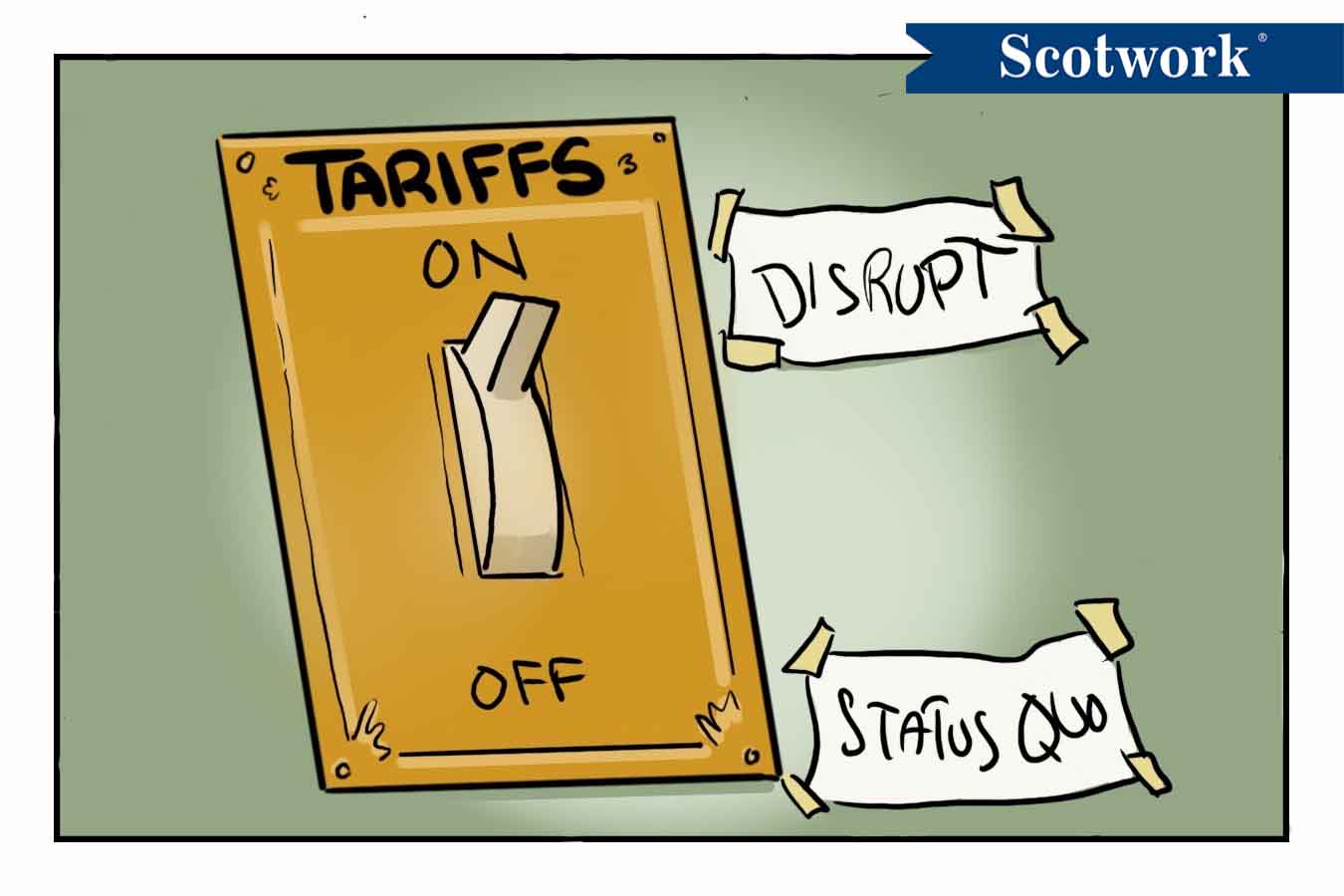Negotiations often come down to one issue: one side wants change, while the other prefers the status quo. The current US tariffs highlight this dynamic. No matter your political views, this situation provides an interesting case: How can negotiators alter or preserve the existing state of affairs? The answers will help anyone negotiate the tariffs’ impacts.
When one side wants to preserve the status quo, they typically delay. The methods might include elongating decision-making, repeatedly rescheduling meetings, demanding extensive data or analysis, or consistently pushing back deadlines. Such tactics rely on inertia: The longer things remain unchanged, the less likely there will be significant changes. Delay tactics drain the other side’s energy, patience, and urgency, and may cause them to abandon their push for change altogether.
However, negotiators aiming to change the status quo must disrupt. They introduce new variables or motivations that shake the other party out of inertia. Ideally, these motivators play directly to what the other side most desires or fears. As an example, the tariffs introduced a scenario that other countries are actively seeking to avoid, thus incentivizing them to engage in a negotiation to remove or mitigate these new, undesirable variables.
Whether you’re delaying or disrupting, there are risks involved. Deliberate delays, which can effectively preserve the status quo in the short term, can damage relationships. The other side may perceive them as bad-faith maneuvers, causing erosion of trust and potentially turning what could’ve been a collaborative negotiation into a competitive standoff. Similarly, introducing drastic or burdensome new variables may prompt resentment or hostility, leading to a breakdown in collaboration and, ultimately, the relationship.
The art of effective negotiation lies in carefully balancing urgency and prudence, new variables, and familiar conditions. Successful negotiators constantly assess their tactics’ cost to the relationship. Whether preserving the current state or driving meaningful change, we recommend respecting long-term relationships and mutual interests.
The tactics used should never overshadow the fundamental objective of negotiation: achieving an outcome that all involved parties can support.
Negotiation Training Can Help You Balance Urgency and Prudence.
Whether you’re preserving or disrupting the status quo, rely on Scotwork’s negotiation training, consulting services, and 50 years of expertise to achieve an outcome that all involved parties can support.

